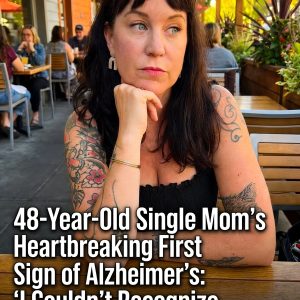When the discharge papers finally cleared, relief was supposed to wash over me.
Yet the only thing I felt was a dull vacancy. Callie, hidden behind her little rainbow mask, clutched her plush bunny and beamed at every passing nurse. My chest, meanwhile, tightened with a weight I couldn’t name.
Our apartment had slipped through our fingers months ago while I camped out by her bedside, counting chemo drips and lab results. Her father vanished long before. Work “understood” until the phone stopped ringing two weeks back—the silence said enough.
I buried it all beneath a practiced smile: smoothed her hair, chose a balloon from the gift shop we couldn’t afford, acted like tomorrow was certain.
Then two uniformed officers strode into the lobby.
For one breathless beat I feared collections, paperwork, debt.
A nurse leaned close and murmured, “They’re here for you—don’t worry.”
The officers hoisted our duffels and mentioned a “temporary placement.” I was too exhausted to question the phrase.
We rolled toward the exit—wheels squeaking, nurses cheering us on like any other family heading home.
Outside, one officer pressed a plain white envelope into my hand. “Open it once you’re in the van,” he whispered.
Seated inside, envelope heavy in my lap, I noticed a name scrawled in the corner—his name.
“Mom, can we get ice cream?” Callie asked, eyes shining through fatigue. Her hope nearly unraveled me.
“Maybe later, love,” I managed. “Let’s see where we land first.”
City blocks blurred by; Callie pointed out murals and dogs, her wonder softening the ache in my ribs. But the envelope felt heavier with every mile.
The van finally turned onto a quiet street of neat bungalows.
We halted before a powder-blue cottage with white shutters. A silver-haired woman waited on the porch, arms folded.
“This will be your temporary placement,” the older officer said. My pulse thudded—was this foster care? A shelter?
I opened my mouth to protest, but the younger officer just nodded toward the envelope.
Callie skipped beside me as the woman—Mrs. Harper—approached. Lines around her eyes softened at my daughter’s grin.
“Come in, darlings,” she said, lifting our bags as though they weighed nothing.
Inside, Callie curled into the sofa while I stared at the untouched envelope. The name in the corner—Derek Monroe—stole my breath.
Could it be my brother Derek? We hadn’t spoken since college pulled us to opposite coasts.
I tore it open. A house key clung to a note card: “Not charity—family. Go to 427 Maple. Everything will be clear.”
427 Maple was this very address. Confusion mingled with a sudden, fragile hope.
The letter inside explained: Derek had followed our story through friends and social feeds. The moment he learned of Callie’s fight, he bought this cottage outright.
“Let me make up for lost time,” he wrote. “This house is yours. No conditions—only allow me back into your life.”
Mrs. Harper re-entered with lemonade and still-warm cookies. She scanned the letter and smiled. “He’s a quiet soul, but his heart’s in the right place. I live two doors down—just until you’re steady.”
Safety, warmth, the startling sensation of being seen—each settled over me like a blanket.
Texts from Derek arrived first, then phone calls. Eventually, one evening, a knock—he stood there with pizzas and board games. Callie adopted him on the spot.
Watching them together, laughter spilling across the living room, a quiet joy cracked open inside me—I was no longer carrying the world alone.
Weeks rolled into months. Derek helped me land a part-time job in a little bookstore; Callie started first grade, collecting friends and art projects.
One sunset on the porch, Derek nudged my shoulder. “None of this changes a thing—you’ve always been my sister.”
Tears stung, but they were the good kind. “Thank you,” I whispered. “For finding us.”
Life remains imperfect—doctor visits, bills, unknowns—but the ground beneath us feels solid again.
If I’ve learned anything, it’s this: ask when you’re sinking, and let the lifeline in when it appears.
Family is not just blood—it’s whoever shows up right when the world tilts.
If our story moved you, share it. Someone scrolling by might need the reminder that it’s okay—and brave—to lean on love.





